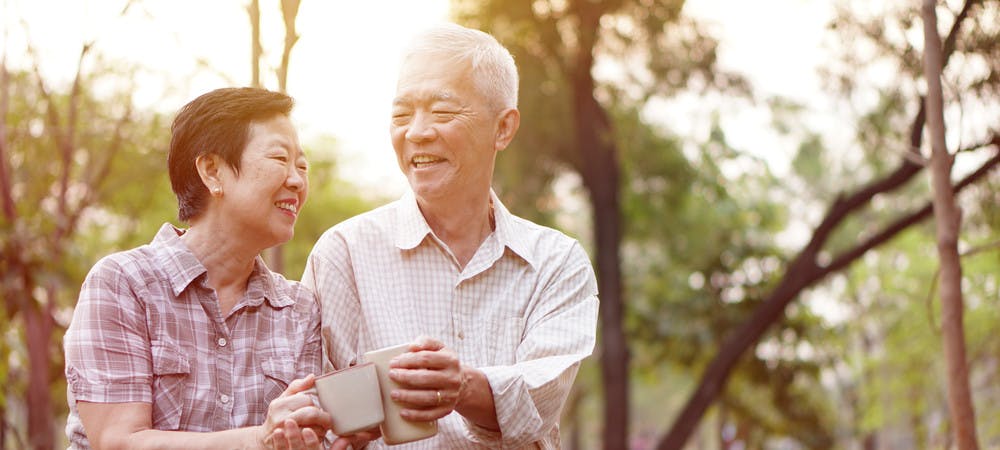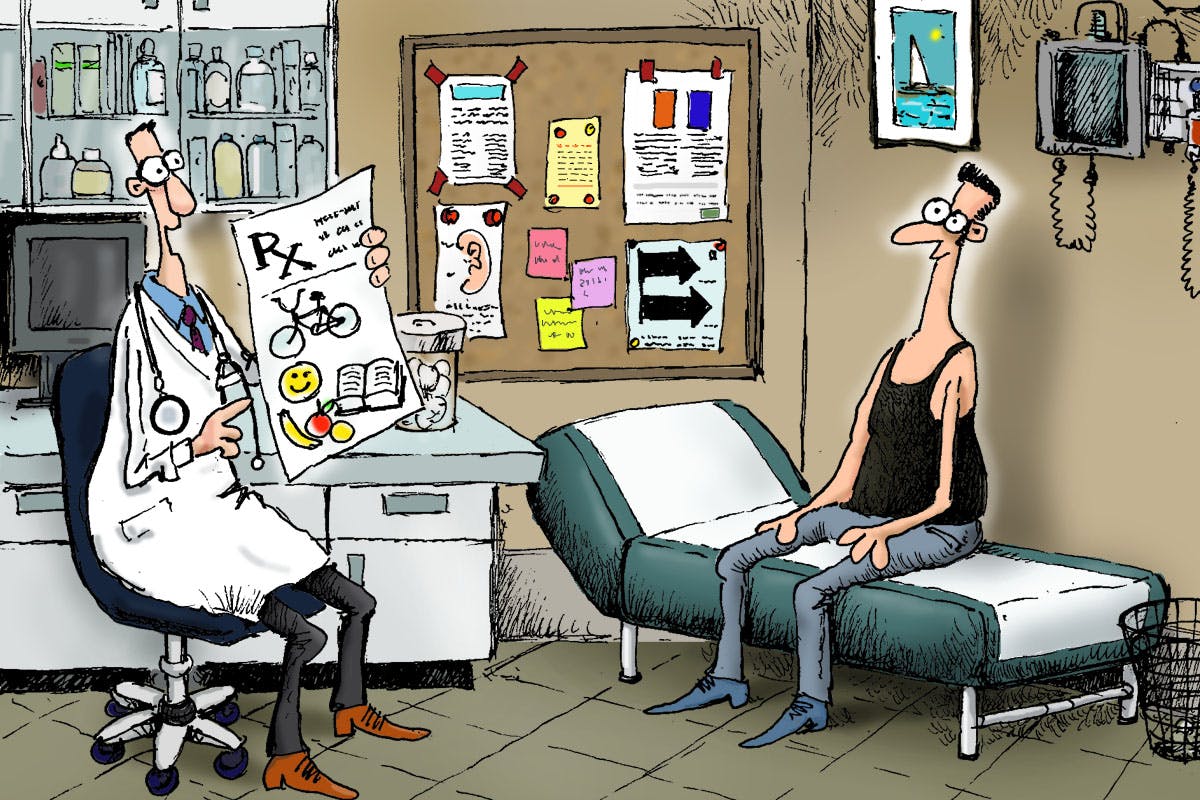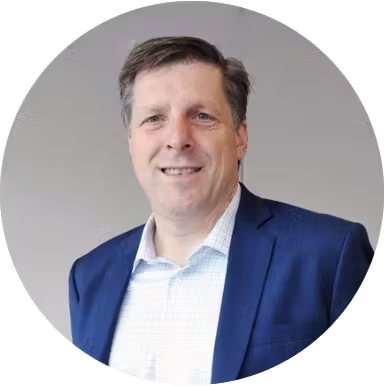How important is the topic of longevity and healthy aging in Singapore?
Dr. Kennedy: Singapore is one of the major countries that’s facing a crisis with the aging population. I like to think of the demographic changes that are happening with aging as the climate change of healthcare. We’re looking at a world where three times as many people will be over the age of 65, as under the age of five. And that’s almost exactly the opposite of what it was even 30/40 years ago. So, if we don’t understand how to manage our aging population, we have a major quality of life crisis and a major economic crisis. Singapore is sort of one of the ground zero countries for that, because they have a very long-life expectancy, a very low birth rate. So, what this means is that you’re going to have only two working people for every retired person in 10 years. To me, that’s a mandate that we have to figure out ways to keep people healthy and functional longer. And I think that can be done because the government here is very progressively minded and trying to think of strategies to deal with the problem of aging. So, I’m very optimistic in Singapore, but there’s certainly a major demand to do something quickly to extend the health span of the population.
Are Asian values different to western values in terms of aging and longevity?
Dr. Kennedy: I actually think Asian values are more attuned to longevity. Because if you look at traditional Chinese medicine, it’s really about prevention and keeping people healthy. Whereas Western medicine has become more about treating people after they get sick. I’d like to say that Western medicine is very good at sick care, but not so good at healthcare. Whereas in the Asian cultures longevity is a major feature of health. And in fact, if you go to temples throughout Asia, you’ll see the longevity symbol in many places and in prominent locations. So, the mindset, I think, here is good and I think what we have to do is to bring sort of Western medicine, maybe even merge it a bit with Eastern medicine and try to develop prevention strategies to keep people healthy. I mean, when you think about what healthy aging is, and interventions, and most of them are prevention minded, how do we do something to help the people to keep them healthy longer, and I think that aligns very well with the sort of Asian mindset.

I think what we have to do is to bring sort of Western medicine, maybe even merge it a bit with Eastern medicine and try to develop prevention strategies to keep people healthy.
From your experience how important are health education and social campaigns to create a health conscious society?
Dr. Kennedy: I think it’s a critical to get the word out to the public. And there’s several reasons for this. One is that aging is perceived as something that can’t be changed, that you just get old. And whatever happens – happens. And we know that’s not the case. We already know, for instance, that lifestyle interventions can have a big impact on aging, things like healthy diet and exercise. And then, of course, some of the pharmacological interventions and other approaches that are being developed probably have even more promise. So, we have to get the word out that it’s possible to stay healthy, longer and slow aging. And I think that’s critical for inducing people to try a lifestyle change, but also to support the research that’s really going to, I think, change them then create a medical revolution, and change how we think about healthcare.
What do you consider as the biggest breakthrough in technology or research in longevity in the recent years?
Dr. Kennedy: I think that this will sound a little bit biased, because I work in this pathway. I think the paper that came out in the first decade of the 2000s, around 2008 – 2009, showing that rapamycin given to a middle-age mouse could slow its aging and extend health span, was a real breakthrough. I mean, we had that data in worms and yeast, and flies. But it’s the first pharmacological agent that really had a robust effect of a million aging. And I think that convinced a lot of people that it was going to be possible to slow aging. Rapamycin targets this TOR pathway. And I still think the TOR pathway may be the most promising target right now to look to slow aging and extend health span. And I think that paper really changed the mindset of the aging field. Before that, we still had a lot of people saying that it may not be possible to alter aging or that it may not be feasible to do it in humans. But I think in the time after that, almost everyone in the field has realized that it’s going to be possible to do something about human aging. And that’s really helped move the field forward.

We have to get the word out that it’s possible to stay healthy, longer and slow aging.
How close are we to delay or reverse age-related diseases?
Dr. Kennedy: I think there are enough different interventions that have been proposed that some of them will work to delay human aging. The question is: how do we test them? how do we validate them? and how do we implement them in populations? And that’s really what I’m spending a lot of my time on here in Singapore, is how do we take these findings from animal models and validate them in human clinical studies? Now, when it comes to reverse aging, I think the question is still out to some extent. I mean, I like to have the strategy where I don’t predict things in humans that can be delivered in animal models. And it’s not really clear that we can reverse aging yet in animal models. I think it’s becoming clear that we can compress morbidity. In other words, keep animals healthy for a very long period of time and shorten the period in which they’re very sick at the end of life. That looks good now, and I wouldn’t have said that maybe five to ten years ago. But in terms of reversing aging, I think it probably may be possible but right now, the evidence is still scarce.
What attracts a new generation of scientists to do longevity related research? Have you noticed an increase in the recent years?
Dr. Kennedy: Definitely, on the preclinical basic science side, there’s a lot more of young scientists that have creative minds and are really driven, smart people, that want to get into the longevity field. And I think it’s because they recognize that this demographic change in the population makes aging one of the most important medical issues of the century. It’s also kind of the ultimate challenge, you know. People have been trying to do something about aging for 25 hundred years and now it feels like this generation, it might be possible to really make that breakthrough. What’s not really happening yet is that the clinician side – people aren’t getting into geriatrics. We need a lot more clinicians working on geriatric medicine. And that’s still not really happening in terms of resident training and things like that for medical doctors. So, I think it is a real opportunity on the clinician side as well to get involved but so far, it has increased, but only in a minor way so far.
What is your longevity secret? What do you do for your longevity?
Dr. Kennedy: Well, I think for me, it’s really been about trying to keep a healthy lifestyle. So, I have tried to exercise regularly. Sometimes I’m better at that than others, especially when I’m traveling, it gets to be difficult. I try to eat more healthy diet. That’s easier here in Asia, by the way. And for me, managing stress has been very important. I have a lot of responsibilities in my job. I’ve learned to try to do my best in doing my job, but also not to stress about it constantly. So that’s, I think, helped me. I’m also of course involved in companies that are developing drugs and natural products that might impact aging. I’ve been intrigued by a couple of natural products recently, but I hate to recommend them yet. We’re really just at the point of looking at humans to what might happen. I would encourage people to really focus on those lifestyle changes. But I do think it’s going to be feasible in the near future, to really start to think about taking pharmacological agents or natural products that might impact aging. I believe that a lot of these natural products may actually work to influence human aging. And of course, they’re, by nature somewhat more safe than new drugs. But we’re really right on the brink of that right now. I’m not sure what the finish line will be.

